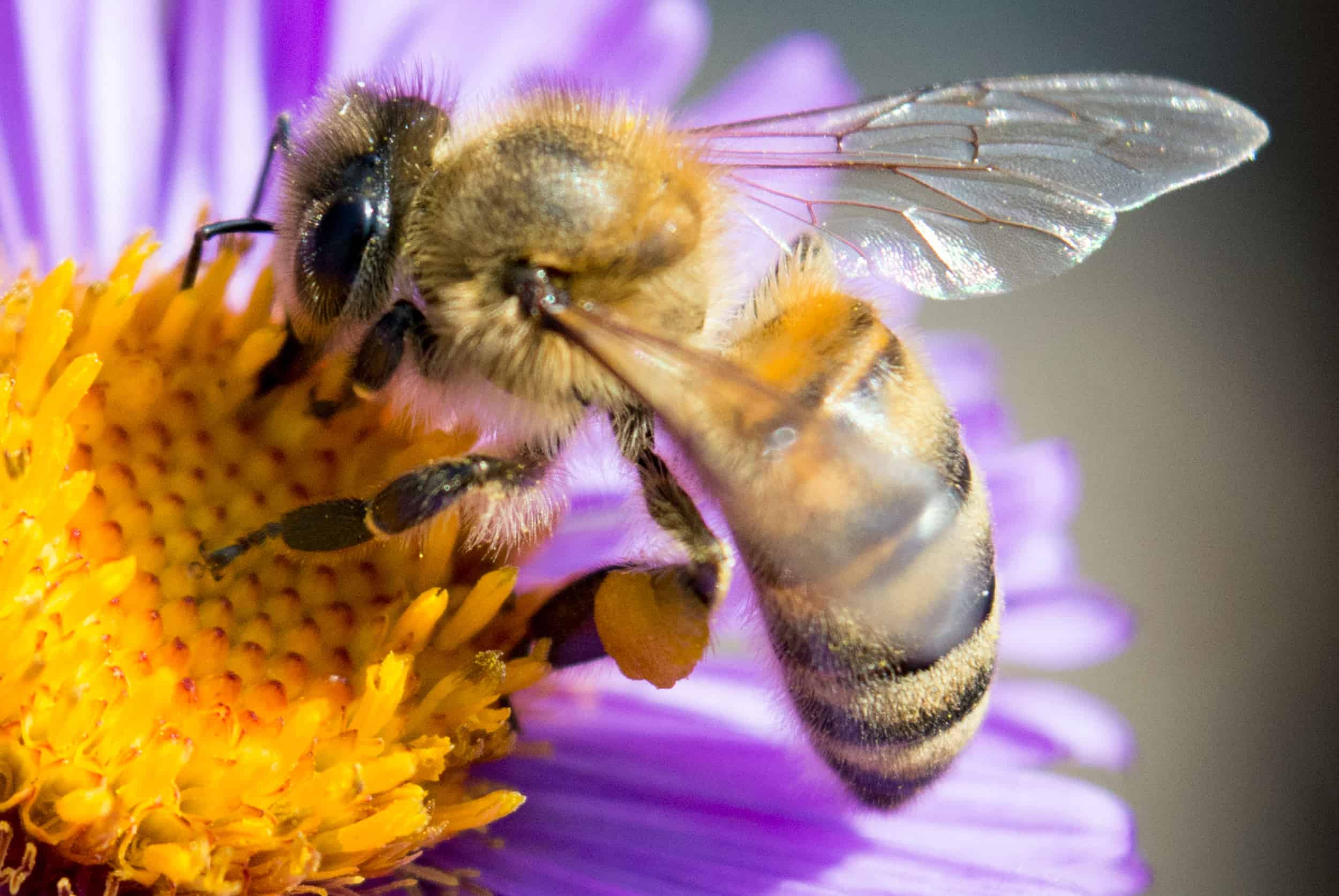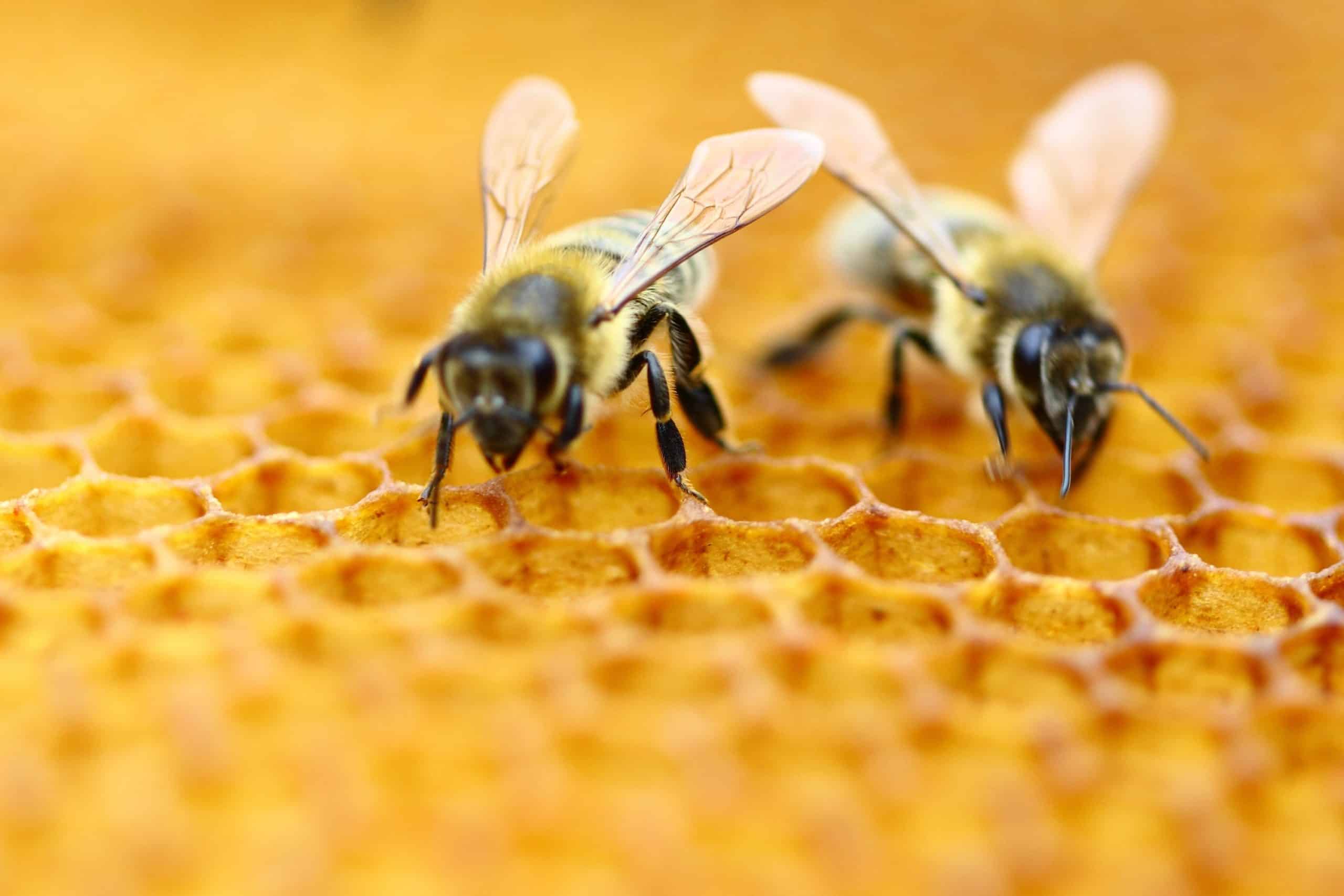Honeybee Harmony
Honeybee Harmony
Why Honeybees are Not Pests
Unlike their cousins’ wasps, yellow jackets, and hornets, honeybees are considered exceedingly docile creatures that attack only when they believe that their colony, or their own person, is in mortal danger. They are social insects that work together in order to benefit their colony as a whole. In this process of aiding their colony, these hardworking little bees manage to fulfill a vital role for the environment as they pollinate hundreds of different plants within each of their given territories. This pollination is a fundamental process for the sustainability and survival of the world’s ecosystems. In addition to this major contribution to the planet, honeybees also provide a precious and widely enjoyed commodity to our tables: honey. Unfortunately, in recent years there have been various reports suggesting a major decline in bee populations across the United States. The United Nations (U.N.) has even stated that extinction rates for bees have increased by roughly 100 – 1,000 times their previously normal rate. Contrary to popular belief, it is not currently illegal in the United States to kill honeybees, however, it is highly frowned on to put these amazing creatures in jeopardy. According to the United States Environmental Protection Agency (EPA) laws have been introduced to regulate certain pesticide use in order to protect honeybees from their devastating effects, and there are several other proposed actions being considered by the EPA to protect these amazing pollinators. In response to this clear decline in Earth’s pollinators, some states and counties have begun enacting programs to help protect honeybees and remove them from lists classifying them as ‘pests’ or ‘vermin,’ instead advocating for relocation programs for any hives in problematic or unideal locations. 
‘World Bee Day’ and Angelia Jolie
May 20th has been deemed ‘World Bee Day’ by the U.N. in an effort to celebrate, “honeybees and other pollinators, such as butterflies, bats and hummingbirds, [that] are increasingly under threat from human activities.” In celebration of this holiday, famed actress Angelia Jolie (known most famously for her performances as Lara Croft in the “Tomb Raider” franchise and Maleficent in Disney’s “Maleficent”) partnered with National Geographic to do a photoshoot aimed at raising awareness regarding the threat of honeybee extinction. The photoshoot, captured by photographer Dan Winters, involved Jolie standing still while a swarm of bees covered her body and buzzed around her head. In order for the bees to cooperate for the stunning shots, Jolie was instructed not to bathe or use scented products for three days as soaps, shampoos, perfumes, lotions, etc. can be confusing or unappealing to honeybees. Furthermore, to entice the bees to interact with Jolie special bee pheromones were wiped onto her skin and dress, drawing the bees to land on her. In reflection of the experience, she stated that, “it just felt lovely to be connected to these beautiful creatures. I think part of the thought behind it was, this creature is seen as dangerous sometimes or stinging. So how do we just be with it? I felt very honored and lucky to have the experience.” In addition to the photoshoot, Jolie has taken a leading role in the United Nations Educational, Scientific and Cultural Organization’s new “Women for Bees” program that provides 30-day beekeeping courses for women in order to promote the conservation of pollinators and other biodiversity. The actress is one of the first of 10 women selected to begin training in this new program and is expected to be reporting publicly on her experiences with these amazing creatures. 
What to Do if Honeybees are Bothering You
The bottom line is that we as humans depend on honeybees. The U.N. reports that, “nearly 90% of the world’s wild flowering plant species depend, entirely, or at least in part, on animal pollination, along with more than 75% of the world’s food crops and 35% of global agricultural land,” and the Illinois Department of Public Health states that “more than one half of all fruit and vegetable crops [in Illinois] are pollinated by honeybees.” But, while honeybees are very beneficial for us and the environment, and typically non-aggressive, they can still be a nuisance or even a potential danger to those with allergies if they try to make their home in or around yours. In such cases, it is encouraged that you try to have the bees removed and relocated in a manner that is safe for both you and the bees. There are many beekeepers and organizations in Illinois that are dedicated to the conservation and relocation of honeybees. Very commonly, if you call a beekeeper or alert local beekeeping groups in your area that there are honeybees in or around your property, they will come collect the bees for free in order to add them to their own apiaries or relocate them to other honeybee conservation programs. You can try locating such groups through quick internet searches, Facebook groups, or even by calling local wildlife associations that can either aid themselves or help connect you to the assistance you need. So, while we not be able to help you with honeybees, you can still call us at Pointe for any other stinging problems you may have. 
Citations
Bees and Wasps (no date) Illinois Department of Public Health. Available at: https://www.dph.illinois.gov/topics-services/environmental-health-protection/structural-pest-control/bees-wasps (Accessed: May 21, 2021). Brisco, E. (2021) Angelina Jolie is covered in bees and calls it ‘lovely’: See the photo, USA Today. Available at: https://www.usatoday.com/story/entertainment/celebrities/2021/05/20/angelina-jolie-poses-bunch-buzzing-bees-world-bee-day/5180907001/ (Accessed: May 21, 2021). EPA Actions to Protect Pollinators (2021) EPA. Environmental Protection Agency. Available at: https://www.epa.gov/pollinator-protection/epa-actions-protect-pollinators (Accessed: May 21, 2021). Lakshmanan, I. (2021) Angelina Jolie embraces bees-and female beekeepers as environmental guardians, National Geographic. Available at: https://www.nationalgeographic.com/environment/article/bee-conservation-women-entrepreneurs-angelina-jolie (Accessed: May 21, 2021). World Bee Day (no date) United Nations. Available at: https://www.un.org/en/observances/bee-day (Accessed: May 21, 2021).
Request a Free Quote Today
(We do not share your data with anybody, and only use it for its intended purpose)


